The Top 21 Countries With The Most Fatal Shark Attacks
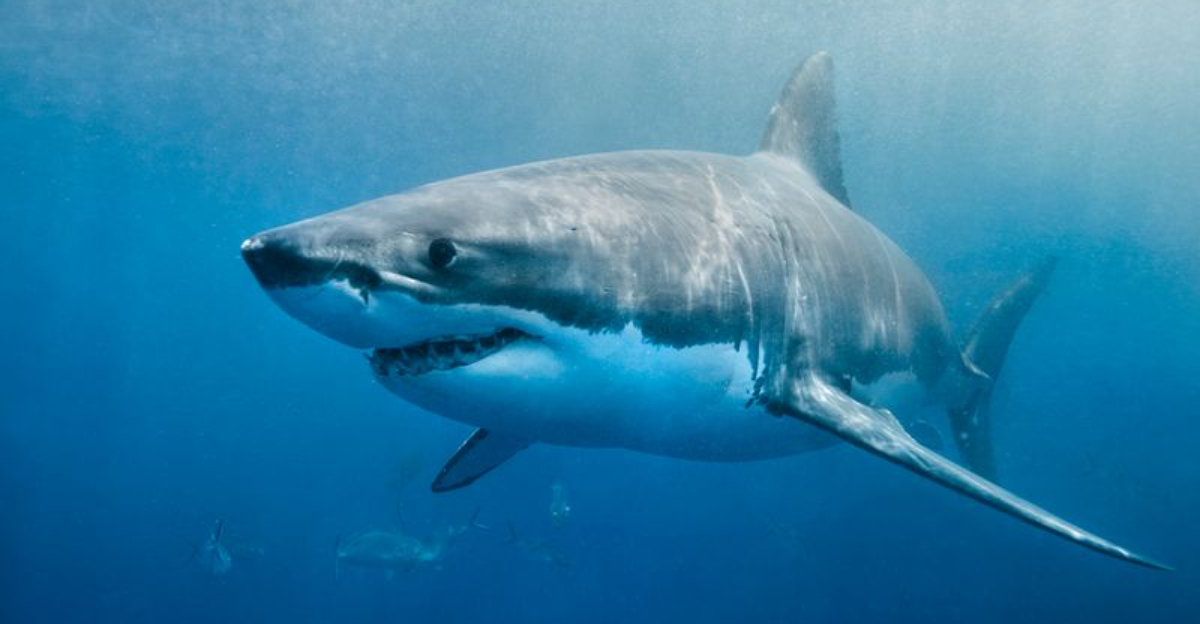
Shark attacks have long captured the human imagination, often striking fear into beachgoers worldwide. While the majority of encounters with these majestic creatures are harmless, certain countries experience more fatal incidents than others.
This article explores the countries where shark attacks have led to fatalities. With each entry, we delve into unique stories, statistics, and what makes these locations prone to such encounters.
Whether it’s the natural habitat of sharks, human activities, or environmental factors, these countries have seen the most tragic interactions with these predators.
1. Australia
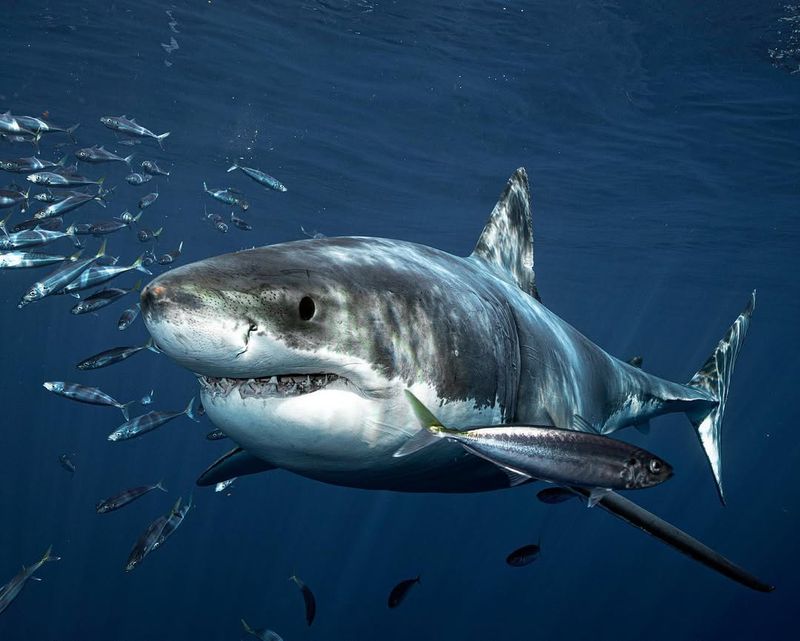
Australia’s coastline is teeming with marine life, making it a hotspot for shark encounters. The country’s vast beaches attract millions, increasing the likelihood of interactions. In recent years, there has been an uptick in fatal shark attacks, particularly along the eastern shores.
Researchers blame warmer waters and increased fishing activities for drawing sharks closer to land. Coastal cities like Sydney and Perth frequently see beach closures due to sightings. The government has implemented various measures, including shark nets and drones, to monitor these predators and ensure public safety.
2. South Africa

South Africa’s rugged coastlines are notorious for shark encounters, particularly near Cape Town. The convergence of ocean currents creates a rich feeding ground for great whites, leading to frequent interactions.
The picturesque False Bay is a known hotspot, attracting both sharks and tourists. Local authorities have invested in advanced tracking systems to mitigate risks.
The presence of cage diving tours also highlights the ongoing fascination with these predators. Despite safety measures, the unpredictability of sharks keeps visitors on their toes, reminding us of the delicate balance between humans and marine life.
3. United States

The United States ranks high with shark-related fatalities, particularly in Florida and California. Warm climates and bustling beaches contribute to frequent encounters. The East Coast, with its rich marine biodiversity, sees the most incidents.
Florida’s New Smyrna Beach is often dubbed the “Shark Attack Capital of the World.” The blend of surfers and abundant fish in these waters invites close encounters. Authorities frequently patrol beaches, ensuring safety and awareness among visitors.
4. Brazil
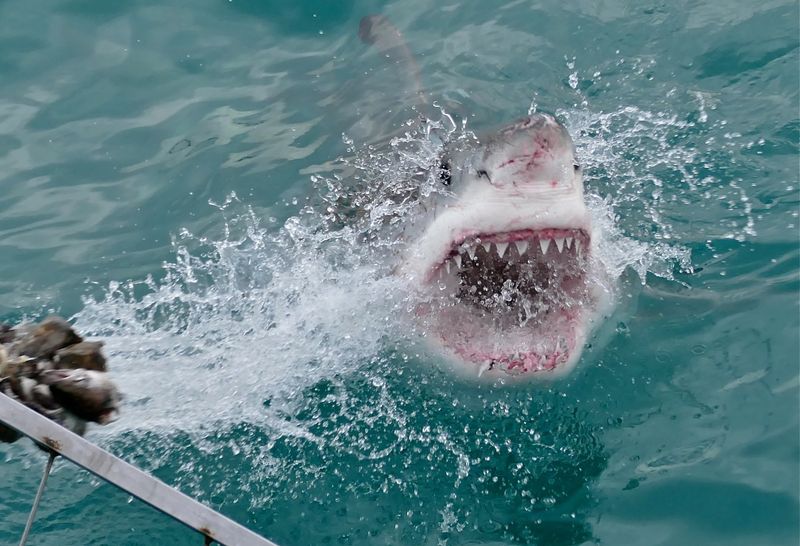
Brazil’s stunning coastlines, especially around Recife, are shadowed by the threat of shark attacks. Urban development and disrupted ecosystems have led to increased shark activity near shores.
Recife’s port expansion and overfishing have been cited as reasons for the spike in encounters. Efforts to educate the public and implement safety measures have been ongoing. Signs and designated swimming areas aim to prevent incidents. While the allure of Brazil’s beaches is undeniable, awareness and caution are encouraged.
5. Bahamas

The Bahamas, known for its idyllic waters and vibrant marine life, is not without its risks. The archipelago’s warm waters attract both tourists and sharks, occasionally leading to fatal encounters.
Shark tourism, including diving excursions, is popular but requires respect and caution. Accidental provocation or misinterpretation by sharks can lead to incidents.
Education and guided tours help reduce risks, ensuring visitors enjoy the beauty responsibly. While these encounters are rare, the balance between adventure and safety is a constant consideration.
6. New Zealand
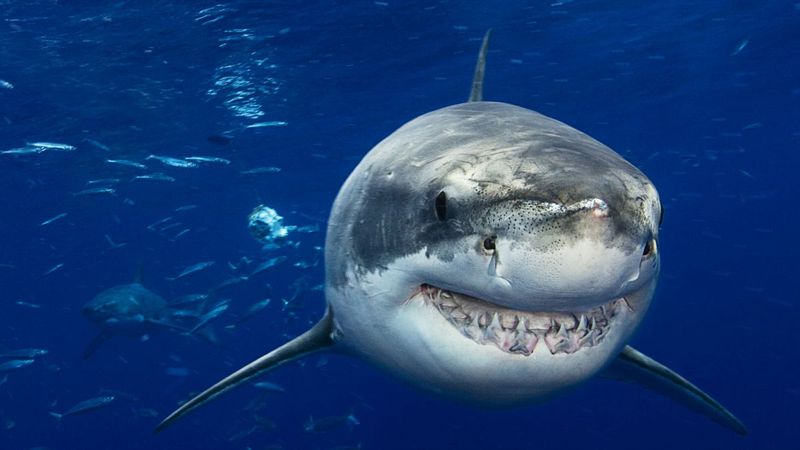
New Zealand’s remote beaches and diverse marine ecosystem offer both beauty and potential danger. The country records occasional shark attacks, with the east coast being more prone to incidents.
Warmer waters and food scarcity drive sharks closer to shores. The government promotes awareness and safety campaigns, especially in popular surfing areas. Shark nets and surveillance are common preventive measures. Despite these challenges, the ocean’s call continues to draw locals and tourists alike.
7. Papua New Guinea

Papua New Guinea’s remote beaches and abundant marine life create a unique setting for shark encounters. The country’s coastal communities rely heavily on fishing, increasing interactions with these predators.
Cultural practices and limited access to safety resources can elevate risks. Efforts to balance traditional livelihoods and modern safety practices are ongoing. Education and community engagement play crucial roles in minimizing incidents. The nation’s deep connection to the ocean underscores the need for harmony between human activities and wildlife.
8. Réunion Island
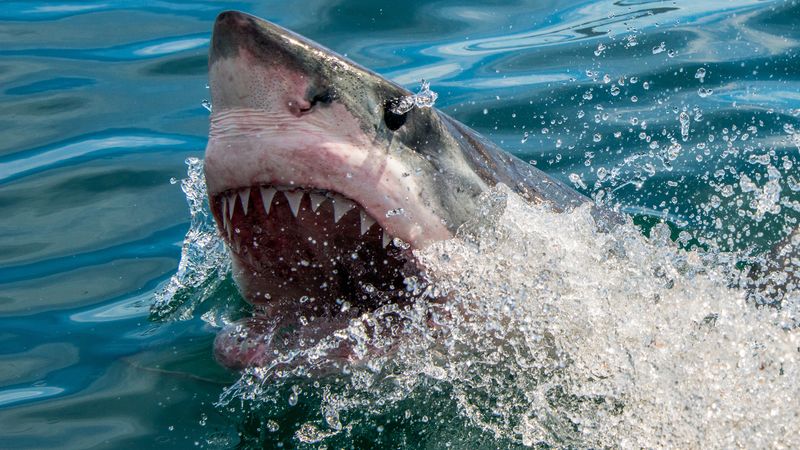
Réunion Island, a French territory in the Indian Ocean, has gained notoriety for its shark-infested waters. The island’s unique geography and oceanic conditions contribute to frequent shark sightings.
Despite advances in tracking and safety measures, attacks remain a concern. Surfing beaches are monitored closely, with restrictions implemented during high-risk periods.
The island’s natural beauty contrasts with the ever-present threat of sharks, challenging locals and tourists to remain vigilant. Réunion’s experience highlights the complex relationship between human activity and marine ecosystems, emphasizing the need for ongoing research and adaptation.
9. Japan
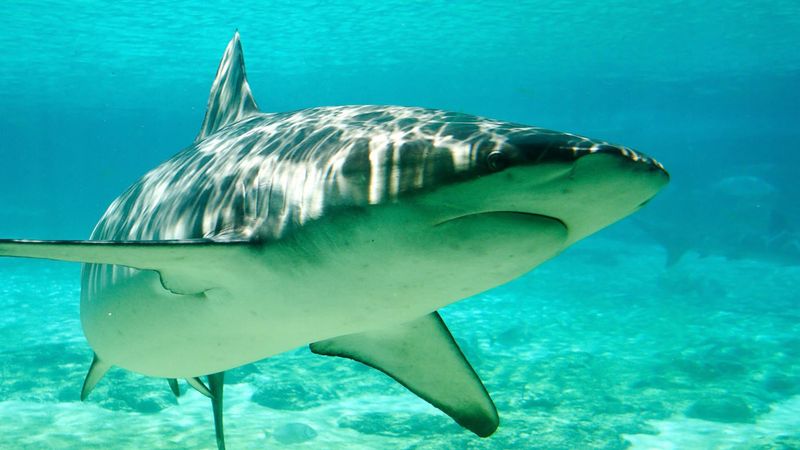
Japan’s coastal waters, rich with marine life, occasionally see shark-related incidents. The country’s vast shoreline and fishing traditions contribute to these interactions.
Ocean warming and prey migration patterns influence shark movements. Safety measures and public awareness campaigns are in place to minimize risks.
The Japanese approach to balancing tradition and safety is evident in their coexistence with marine predators. While encounters are rare, the potential for danger underscores the need for vigilance.
10. Mexico

Mexico’s extensive coastline and vibrant marine life make it a popular destination, but not without risks. Certain regions, such as Baja California, are known for shark activity.
Environmental factors and tourism growth contribute to occasional encounters. Authorities promote awareness and safety guidelines to reduce incidents.
Education campaigns highlight the importance of respecting marine habitats. While shark attacks are rare, the presence of these predators is a reminder of the ocean’s unpredictability.
11. Thailand

Thailand’s popular beaches draw tourists from around the world, but they also face the risk of shark attacks. The country’s thriving tourism industry and marine activities contribute to these interactions.
Safety measures and public awareness campaigns are in place to mitigate risks. The importance of respecting marine life and habitats is emphasized through education. While the risk of shark encounters is low, the potential for danger remains.
Thailand’s beaches offer a unique blend of beauty and caution, reminding visitors of the need for mindfulness while enjoying the ocean’s wonders.
12. Egypt

Egypt’s Red Sea coast, known for its stunning coral reefs and rich biodiversity, occasionally experiences shark attacks. The area’s growing tourism industry and marine activities contribute to these encounters.
Local authorities prioritize safety through regulations and monitoring. Tourist education on marine life and safety practices is essential. Despite the potential risks, the Red Sea’s beauty attracts divers and snorkelers worldwide. The balance between tourism and marine conservation remains a focal point.
13. Fiji

Fiji’s idyllic beaches and vibrant marine ecosystems draw many, but they also carry the risk of shark encounters. The archipelago’s warm waters and diverse sea life create ideal conditions for these predators.
Local communities and tourism operators work together to promote safety and respect for marine life. Guided tours and educational programs aim to reduce risks while enhancing visitor experiences. The importance of preserving marine habitats is emphasized, aligning conservation with tourism.
Fiji’s approach showcases a harmonious blend of cultural respect, natural beauty, and proactive safety measures, ensuring memorable and secure visits.
14. Indonesia

Indonesia’s vast archipelago, rich in marine biodiversity, is occasionally the site of shark attacks. The country’s extensive fishing industry and tourism contribute to these interactions.
Efforts to balance economic activities with marine conservation are ongoing. Authorities and NGOs promote education and safety awareness to minimize risks. The importance of respecting marine ecosystems is highlighted through various initiatives. While the allure of Indonesia’s beaches is undeniable, caution remains key.
15. Philippines

The Philippines, with its vast coastlines and rich marine life, occasionally sees shark-related incidents. The country’s fishing traditions and tourism contribute to these encounters. Community engagement is vital in promoting awareness and preventive measures.
The balance between economic growth and marine conservation is a recurring theme. While shark attacks are rare, the potential for encounters requires vigilance.
16. Venezuela

Venezuela’s stunning coastlines, particularly in the Caribbean, occasionally experience shark encounters. The country’s fishing practices and coastal activities contribute to these interactions.
Efforts to promote safety and respect for marine life are ongoing. The balance between human activity and conservation is a continuous challenge. While shark attacks are infrequent, awareness is essential for safe enjoyment of the ocean.
Venezuela’s approach highlights the importance of coexistence with marine predators, ensuring both the preservation of natural beauty and the safety of beachgoers.
17. Cuba

Cuba’s picturesque beaches, particularly along the northern coast, occasionally experience shark encounters. The country’s vibrant marine ecosystem and fishing activities contribute to these interactions.
Education campaigns highlight the importance of respecting marine habitats. While shark attacks are infrequent, the potential for danger remains.
Cuba’s approach reflects a balance between tourism, tradition, and safety. The country’s efforts to protect both visitors and marine life continue to evolve, ensuring the preservation of its natural beauty while fostering a safe environment for exploration.
18. Sri Lanka

Sri Lanka’s coastal waters, rich in biodiversity, occasionally see shark encounters. The country’s fishing communities and tourism industry contribute to these interactions.
Efforts to balance economic growth with marine conservation are visible. Public awareness campaigns emphasize respect for marine life and habitats. While shark attacks are rare, the potential for danger requires vigilance.
Sri Lanka’s experience underscores the importance of harmony between human activities and natural ecosystems, ensuring both prosperity and preservation.
19. Madagascar

Madagascar’s remote beaches and rich marine biodiversity occasionally see shark encounters. The country’s fishing communities and unique ecosystems contribute to these interactions.
Efforts to balance traditional livelihoods with modern safety practices are ongoing. The importance of respecting marine habitats is a recurring theme. While shark attacks are rare, the potential for danger requires vigilance.
Madagascar’s experience highlights the challenges of managing human and wildlife interactions, emphasizing the need for sustainable practices and coexistence with nature’s predators.
20. Taiwan

Taiwan’s coastal waters, rich in marine life, occasionally see shark-related incidents. The country’s fishing traditions and tourism contribute to these interactions.
Authorities implement safety measures and promote public awareness to minimize risks. The balance between economic growth and marine conservation is a continuous challenge.
While shark attacks are rare, the potential for danger underscores the need for vigilance. Taiwan’s approach reflects a blend of cultural respect and modern precaution, offering insights into living harmoniously with nature.
21. Spain

Spain’s Mediterranean beaches, known for their beauty, occasionally see shark encounters. The country’s thriving tourism industry and marine activities contribute to these interactions.
Efforts to balance tourism with marine conservation are visible. Public awareness campaigns emphasize respect for marine life and habitats. While shark attacks are rare, the potential for danger requires vigilance.
Spain’s experience underscores the importance of harmony between human activities and natural ecosystems, ensuring both prosperity and preservation.






